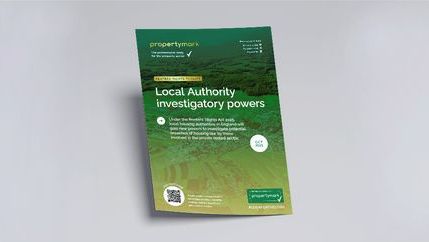
Several facets of the proposals were positively received – in particular, the introduction of a property portal, the principle of outlawing ‘no-fault’ evictions, and greater rights for tenants to keep pets. However, ‘the devil is in the detail’ and ‘unforeseen consequences’ may have been the most repeated phrases during the three-hour Commons session as MPs put their hopes for the Bill on record.
Renters' Rights Act
The Renters’ Rights Act 2025 received Royal Assent on 27 October 2025. The first phase of reforms will take effect on 1 May 2026, marking the most significant shift to tenancy law in a generation. From this date, all existing and new private tenancies in England will move onto the new system.
What will happen next?
A Public Bill Committee of MPs will now scrutinise the draft legislation line by line and will provide the first opportunity to propose, debate and vote on suggested amendments and new clauses. The following areas were highlighted in the Second Reading debate as potential hot topics for amendments.
Anti-social behaviour (ASB)
A number of speakers, including Deputy Labour Leader and Shadow Secretary of State for Levelling Up, Housing, Communities & Local Government the Rt Hon Angela Rayner, MP, drew attention to the need for clarity on what constitutes ASB. Several speakers stated the current situation is ambiguous and open to abuse – examples given included evictions on the grounds of ASB in incidents of domestic violence and mental health issues, where vulnerable tenants should instead have been supported.
Section 21 and court reform
Widespread concern was expressed about how long it would take to implement changes in the justice system because this doesn’t fall within DLUHC’s remit. Little detail has been announced on what exactly needs to be in place before the Section 21 ban will be enforced, or how the reforms will be carried out.
It was also noted that in its present form, the Bill immediately removes protections for tenants evicted under Section 21 – notably the right to assistance from their local council to prevent them from becoming homeless. The Rt. Hon. Angela Rayner, MP, stated that this loophole could lead to a huge spike in homelessness and must be closed.
Warnings were also voiced that more landlords would leave the market if they were not convinced they would have a reasonable path to possession once Section 21 is removed. The Rt Hon Micheal Gove stated in his opening remarks that anyone who wishes to occupy their property because they need to sell it, repair it, have family members within it, or for any other reason, can do so. However, further reassurances are still needed on how this will work in practice.
Extended notice periods
Many speakers supported a call for longer notice periods for evictions, extended from two months to four months, to give tenants time to find alternative accommodation and reduce the number of cases where Councils are required to provide temporary housing.
Longer ban on reletting
There was also broad support for extending the prohibition on reletting after a Section 8 eviction due to a change of landlord circumstances to 12 months to ensure this was not used as an alternative to Section 21.
Economic evictions
The Rt Hon Angela Rayner, MP, remarked that the Bill is silent on the issue of economic evictions, which is when rent is raised beyond the level a tenant can afford in order to force them to leave a property. She welcomed the strengthening of the law to ensure landlords can only increase rents once a year but said the mechanism for tenants to challenge excessive rent hikes is not strong enough.





